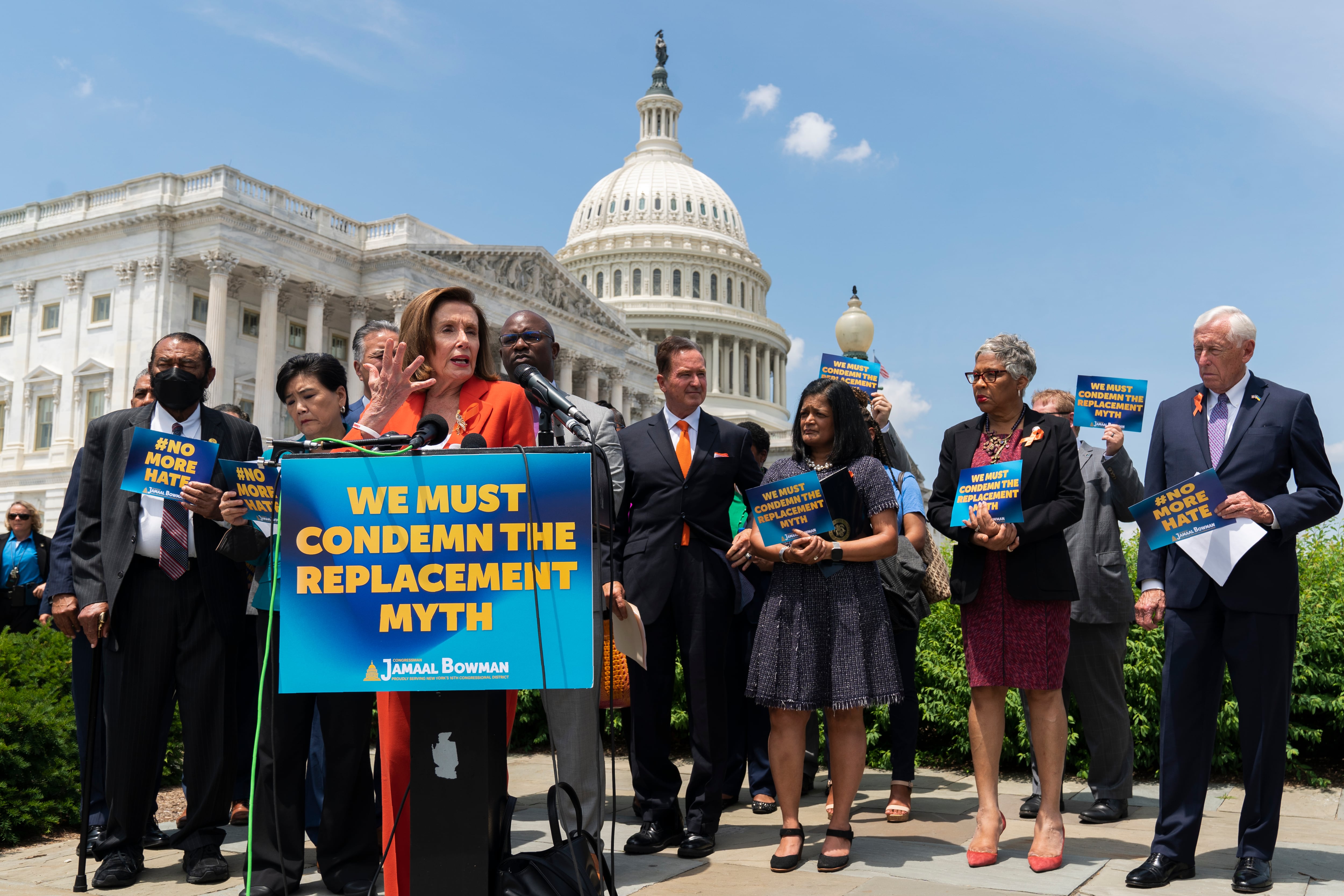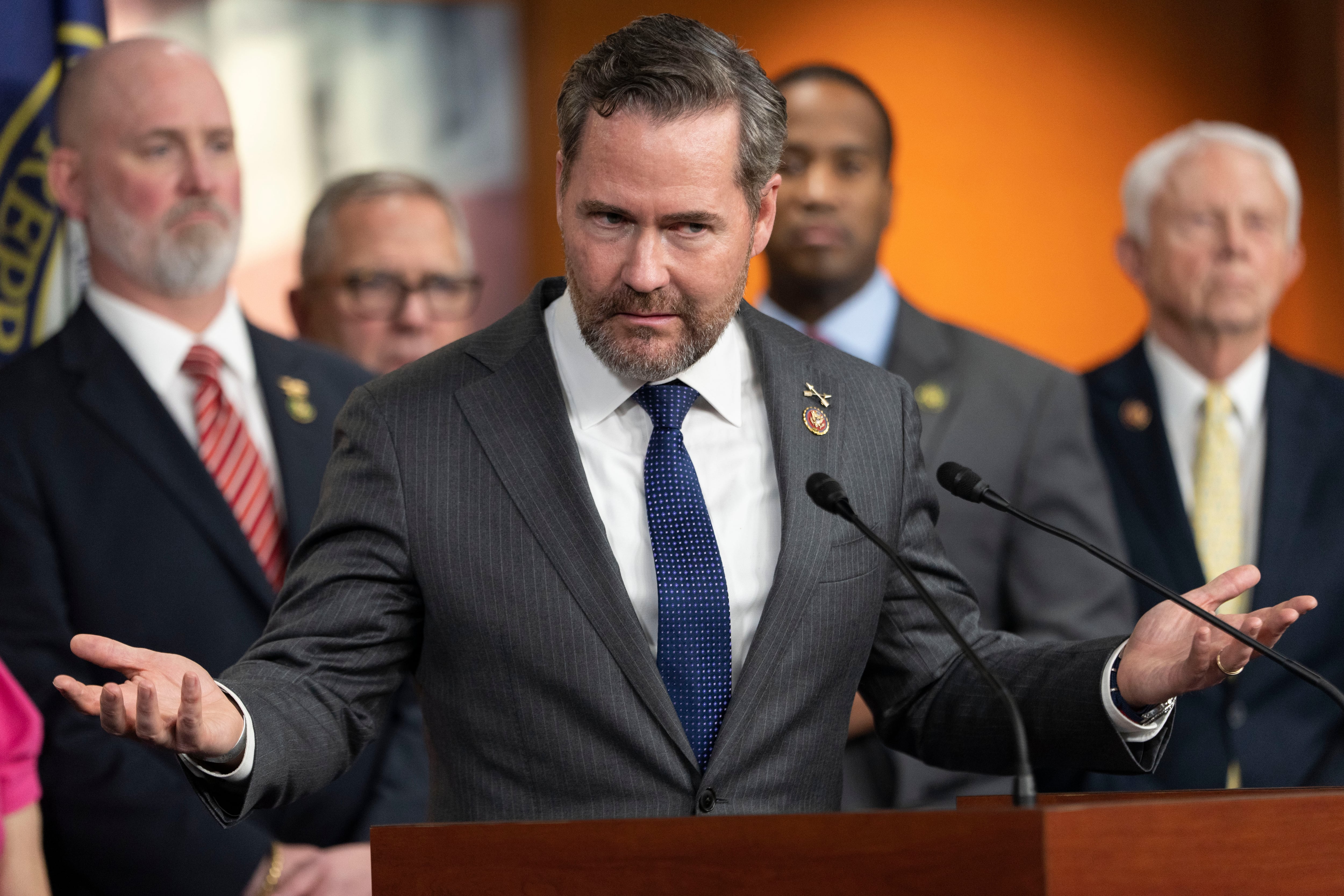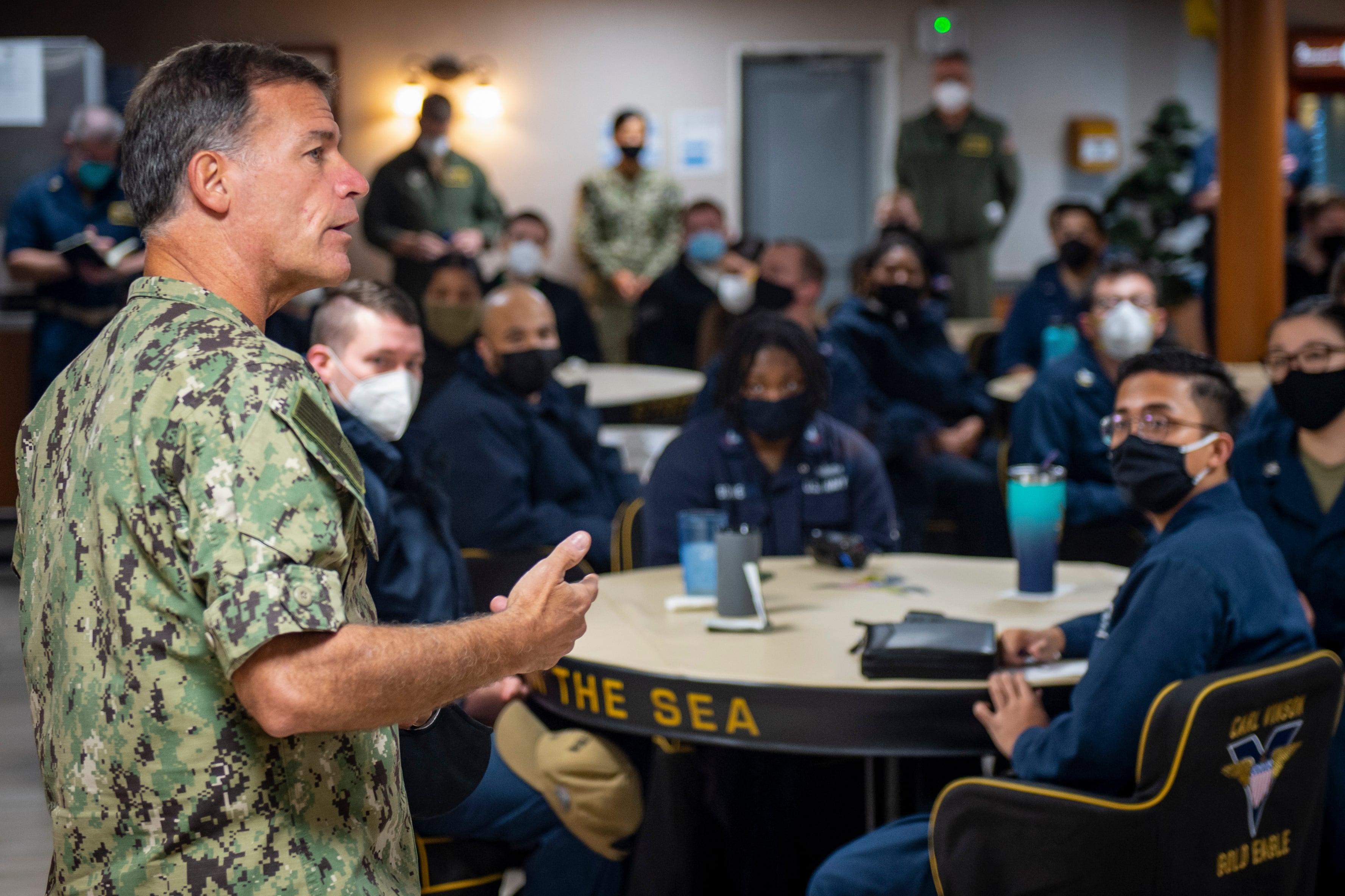A new survey of about 1,000 veterans found no evidence that the population harbors more extreme beliefs than the rest of the American public — though its authors acknowledged that the results are limited by how many people were willing to be honest about their extremist stances. And it did show that about a third of veterans surveyed believe in the “Great Replacement” conspiracy theory – that people of color are being allowed to enter the U.S. to upend the white majority.
Still, the findings released Tuesday by Rand Corporation are being seized on by some Republican lawmakers as a reason to end Pentagon funding to fight military extremism in active duty ranks.
“We’ve had this narrative the last couple of years that the military has this growing and dire problem of white supremacy and extremism within it,” Rep. Mike Waltz, R-Fla., told the Military Times. “I’ve repeatedly said that we have very little data to back that up,” he said. He said he hoped this report would end Congress’ discussion on the need for more focus on extremism in the ranks.
But Rep. Mark Takano, D-Calif., the ranking Democrat on the House Committee on Veterans’ Affairs, said the report highlighted the need for lawmakers to do more to discredit extremist ideas among veterans and the general population. The level of support for the Great Replacement theory among the American public is particularly concerning, he said.
“I would like to work with my colleagues in the majority to find out why a small group of veterans have been drawn to violent extremism and then work with VA and DOD to figure out a concrete plan to address growing extremism among the military and VA communities,” Takano said in a statement.
The survey by the nonpartisan think tank asked whether respondents supported the following: white supremacy, black nationalism, the neo-Nazi Proud Boys, or Antifa, a far-left, anti-fascist group. While just 1% of participants said they supported white supremacists, Antifa saw the most support, at 5.5%. Rand compared the results to a Morning Consult survey of 2,000 registered voters that found 7% support white supremacy, while 10% support Antifa.
“We did not find evidence of veterans having a higher prevalence rate for extremism,” said Todd Helmus, a senior behavioral scientist at RAND and the lead author of a report detailing the survey results. “In fact… they at least appear to have lower risk, particularly support for groups like Antifa and Proud Boys and the KKK, as well as QAnon views.” He made no comment on the “Great Replacement” theory results.
Veterans’ beliefs in the far-right conspiracy theory QAnon were also less than the general population, at 13.5%. About 17% of the overall American public agree with QAnon theories, according to the 2022 “American Values” survey of 2,500 people by the nonprofit Public Religion Research Institute.
Veterans’ support for political violence and belief in the Great Replacement are roughly on par with the rest of the country, with 19% supporting political violence and 29% believing in the Great Replacement, a conspiracy theory about lenient immigration policies being designed to replace the power and culture of white people in the United States. RAND included the Great Replacement theory as a separate question from the one asked about veterans’ beliefs in white supremacy. To gauge the latter, they asked veterans if they supported the KKK, Patriot Front or Ayran Brotherhood.

The study didn’t try to determine how many veterans have joined extremist groups or the potentially outsized influence they could bring to those organizations because of their combat training, logistical knowledge and leadership capabilities — topics that Helmus and the report’s other authors believe are cause for further research.
Helmus and his co-authors, Ryan Brown and Rajeev Ramchand, were prompted to conduct the survey after the Jan. 6, 2021, attack on the U.S. Capitol, when some supporters of former President Donald Trump attempted to stop Congress from certifying the 2020 election results. About one in six people charged in the riot had connections to the military, according to data from the National Consortium for the Study of Terrorism and Responses to Terrorism, known as START.
The attack drove the Defense Department to hold an extremism “stand-down,” a military-wide training on the potential signs and dangers of extremist ideology.
The topic of extremism in the military has since been a source of contentious political debate. Republicans have decried the stand-down as an effort to politicize the military and tarnish the public image of the armed forces. Democratic lawmakers — and senior military officials — say teaching troops to identify and eschew extremism is necessary to prevent the few troops with radical views from poisoning the wider force with their hateful ideology.
“If we had to hypothesize at the start, it may have been that veterans are at increased risk, just because of all the chatter among the elite class about that risk,” Helmus said. “But we didn’t find that to be the case… Veterans are not as scary as some may have made them out to be. And they have more resilience than maybe some have given them credit for.”
The GOP’s opposition to investigating extremism in the armed forces effectively shut down those efforts already, CNN reported Friday. Senior military officials reportedly folded under political pressure from Republicans and didn’t follow through on recommendations to counter extremism made in 2021 by the DOD’s Countering Extremism Working Group. The Pentagon didn’t immediately respond to request for comment about the CNN report.
Like Waltz, Rep. Mike Bost, R-Ill., the chairman of the House Committee on Veterans’ Affairs, said the report showed the need for Congress to shift its focus away from the issue of extremism in the armed forces.
“For years, my friends on the other side of the aisle alleged that the veteran community is full of extremists,” Bost said in a statement. “Today’s Rand report proves what Republicans have been saying all along. There is no evidence that veterans are more extreme than non-veterans.”

But Rep. Andy Kim, D-N.J. and ranking member of the House Armed Services Committee’s personnel panel, said he doesn’t think the survey findings eliminate the need for the military to focus on the problem of extremism in the ranks.
“It’s encouraging that we’re not seeing any sort of higher levels of extremism in our military compared to general society. But it doesn’t mean that we don’t stay vigilant,” Kim said, especially as the training doesn’t take that much time out of troops’ schedules.
Olya Voytovich, the spokesperson for the Senate Veterans’ Affairs Committee, agreed, arguing that any threat to military security should be addressed.
“These findings make it clear that we need more research into the root causes that have pushed a small group of folks toward violence or extremism,” Voytovich said in a statement.
Brown, another behavioral scientist at RAND who co-wrote the report, agreed that attention to the issue is still warranted, but conversations about the prevalence of extremism should be focused on the entire U.S. population, rather than exclusively on veterans and service members, he said.
“The risk is everywhere. We don’t need to unduly focus on veterans, and we certainly don’t need to stigmatize or write these narratives of expectation in our minds that are actually harmful,” Brown said.
RAND’s report could unwittingly give lawmakers reason to ignore extremism in the military, warned Allison Jaslow, CEO of Iraq and Afghanistan Veterans of America. Jaslow also argued the results were unreliable because the survey relied on people to identify themselves as extremist thinkers.
“I’m skeptical of this research because I don’t know that it can be expected of individuals to self-report that they agree with extremist views or are a member of an extremist organization,” Jaslow said. “It’s much more realistic to ask people if they see problems with other peoples’ views, versus themselves.” IAVA conducted its own survey last year with the help of Syracuse University. The university asked about 5,000 veterans whether they had witnessed incidents of extremism in the military, and 32% said they had.
Leaders of We The Veterans, a pro-democracy, non-partisan nonprofit, said they hoped the report would drive the political parties together to work on the issue, particularly because the survey asked about both far-right and far-left organizations. The group works to bolster resiliency against disinformation among military communities and advocates for more civic education and media literacy in the American school system.
“Depending on what kind of media silo you’re in, you could think that the military has gone way too far to the left or think of the population as way too far to the right,” said Ellen Gustafson, a co-founder of the group. “It’s wonderful to see the validation in this report that most military veterans are not so far down the rabbit hole of either side of the sort of extremist organizations that are very much trying to target them.”
This story was produced in partnership with Military Veterans in Journalism. Please send tips to MVJ-Tips@militarytimes.com.
Nikki Wentling is a senior editor at Military Times. She's reported on veterans and military communities for nearly a decade and has also covered technology, politics, health care and crime. Her work has earned multiple honors from the National Coalition for Homeless Veterans, the Arkansas Associated Press Managing Editors and others.
Leo covers Congress, Veterans Affairs and the White House for Military Times. He has covered Washington, D.C. since 2004, focusing on military personnel and veterans policies. His work has earned numerous honors, including a 2009 Polk award, a 2010 National Headliner Award, the IAVA Leadership in Journalism award and the VFW News Media award.





